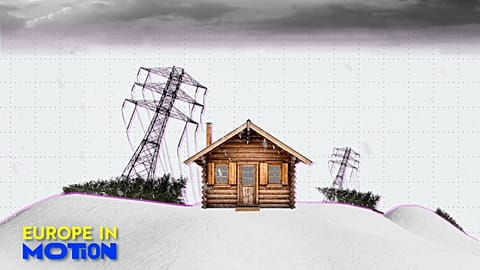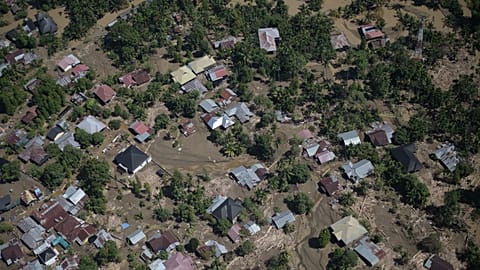The general blackout on 28 April could be a recurring scenario due to limited connections to the continental power grid, according to a new study.
About 60 million people were left without electricity for several hours in April this year following a massive blackout that left Portugal and Spain in the dark. It was the largest blackout in modern history, a nightmarish scenario that is unlikely to be repeated - or perhaps not.
Portugal and Spain are the most vulnerable countries in Europe to blackouts, according to a study by the British think tank Ember, which focuses on energy transition.
“The Iberian Peninsula is more vulnerable to blackout risks than other European countries due to limited connections to the continental grid," the study says.
"After the blackout, Spain and Portugal urged the EU to support new interconnection projects, citing stronger links as essential to avoid future disruptions."
How long did it take Spain and Portugal to recover from the blackout?
Ember outlines how Spain managed to fully recover from the incident after 16 hours, aided by France and Morocco.
“Just 10 minutes after the blackout, the first France-Spain power line was re-energised, quickly followed by the interconnection with Morocco and other connections with France," the study explains.
"With the help of hydroelectric and gas units, full restoration was achieved in Spain around 4 am on 29 April, about 16 hours after the incident."
It did not specify the recovery time for Portugal, but Portuguese Environment Minister Maria Graça Carvalho said in May that the country restored its electricity grid after ten hours.
"We had a complete recovery after 10 hours, which for an event of this kind is an exemplary recovery," she stated.
According to the preliminary report by the European Association of Electricity Transmission System Operators (ENTSO-E), which detailed the recovery timings of the two countries, unlike Spain, Portugal did not have immediate external support, starting the process of restoring electricity independently.
Less than an hour after the failure, REN (the company in charge of Portugal's electricity grid) activated hydroelectric plants in the country with autonomous start-up capacity, namely the Castelo de Bode hydroelectric plant and the Tapada do Outeiro combined cycle plant.
The recovery progressed in phases, with the first energy supply islands within the country starting to operate between 4:00 pm and 5:30 pm, ensuring the gradual restoration of the grid. Iberian reinforcement only arrived from 6:36 pm, when the first interconnection with Spain was restored. The restoration of electricity accelerated from that moment, with the Portuguese system benefiting from the stability of the neighbouring grid.
As for the causes that led to the blackout, a Spanish government report points to a "multifactorial origin", with the incident resulting from episodes of overvoltage. The document ruled out the possibility of cyberattacks and external interference, instead reinforcing that the incident stemmed from systemic failures, such as insufficient planning and vulnerabilities in voltage control on the electricity grid.
The final report conclusions from European operators (ENTSO-E) are expected to be released in October.
Limited import capacity
The Spanish recovery reveals the importance of electricity imports, which are apparently very limited in mainland Europe.
“Adding up the maximum electricity demand of countries with three or fewer import directions and a potential import rate of 25 per cent or less, up to 55 per cent of the European electricity system can be considered at risk due to limited emergency import options," Ember's analysis says.
"Three countries – Spain, Ireland and Finland – are particularly exposed, with very little support available from neighbours in case of grid incidents."
Portugal relies almost exclusively on Spain, which means that in case of problems in the neighbouring country, Portugal has few import alternatives.
The importance of interconnections between EU countries is also proven by the case of Ukraine and Moldova, which, according to the study, "would have faced a severe loss of power due to Russian aggression had it not been for cross-border electricity exchange with EU neighbours".
Portugal and Spain push Brussels for more interconnections in the EU
Following the major blackout, the governments of Portugal and Spain called on the European Commission for political and financial commitments to advance interconnections between the Iberian Peninsula and the rest of the European Union.
“A firm political and financial commitment is needed at all levels to ensure the rapid and effective integration of the Iberian Peninsula into the EU energy system," explained the ministries of Environment and Energy of Portugal and Ecological Transition of Spain.
"This will require an additional leap in interconnectivity and substantial investment in European electricity grid infrastructure."
In the letter, addressed to the European Energy Commissioner Dan Jørgensen, it proposed holding “a ministerial meeting later this year, in which, together with France and the Commission, a roadmap with milestones and concrete steps to follow to achieve European targets for 2030 and 2040 can be agreed”.


















